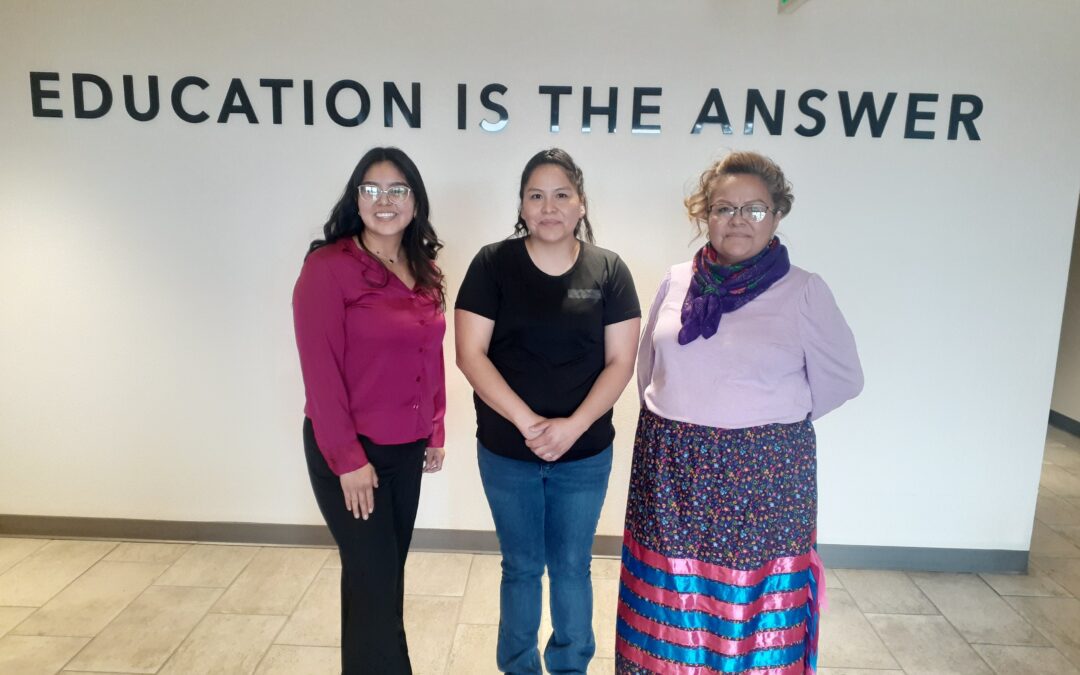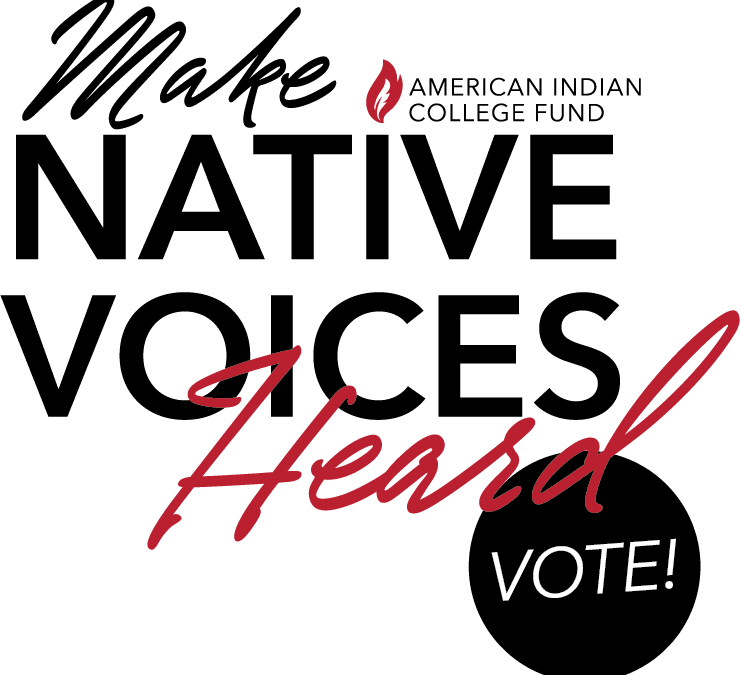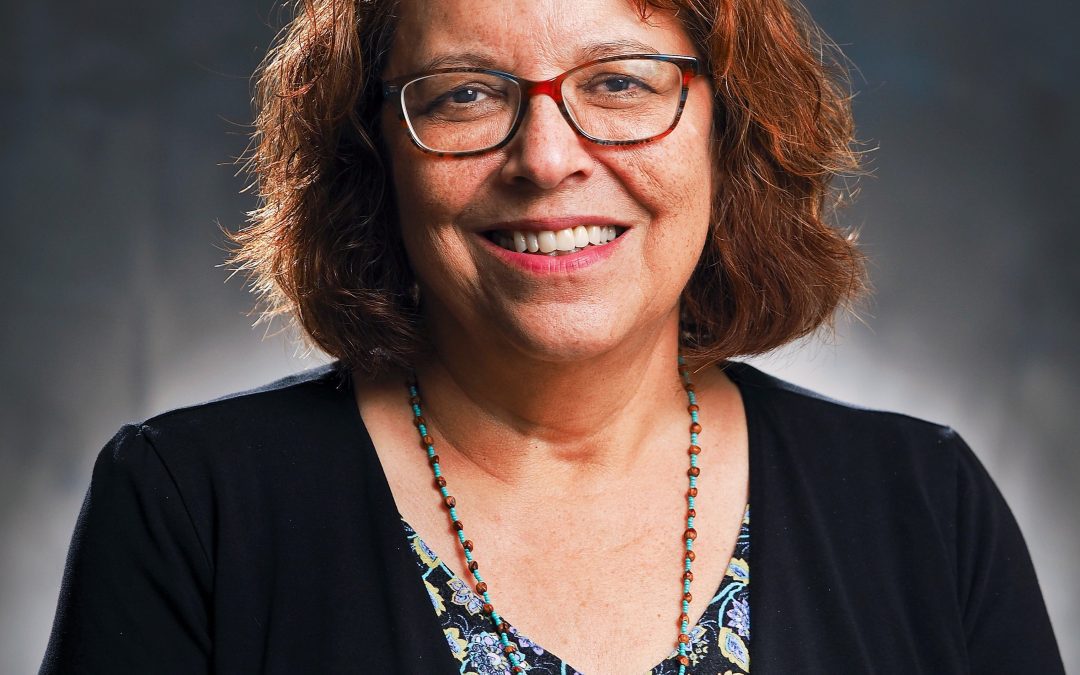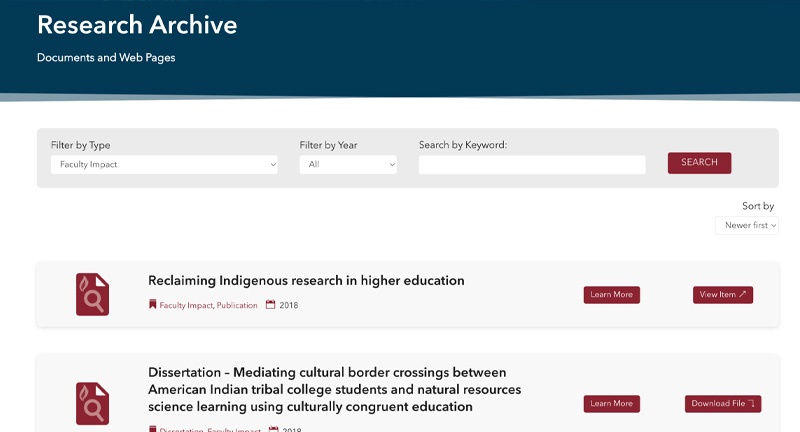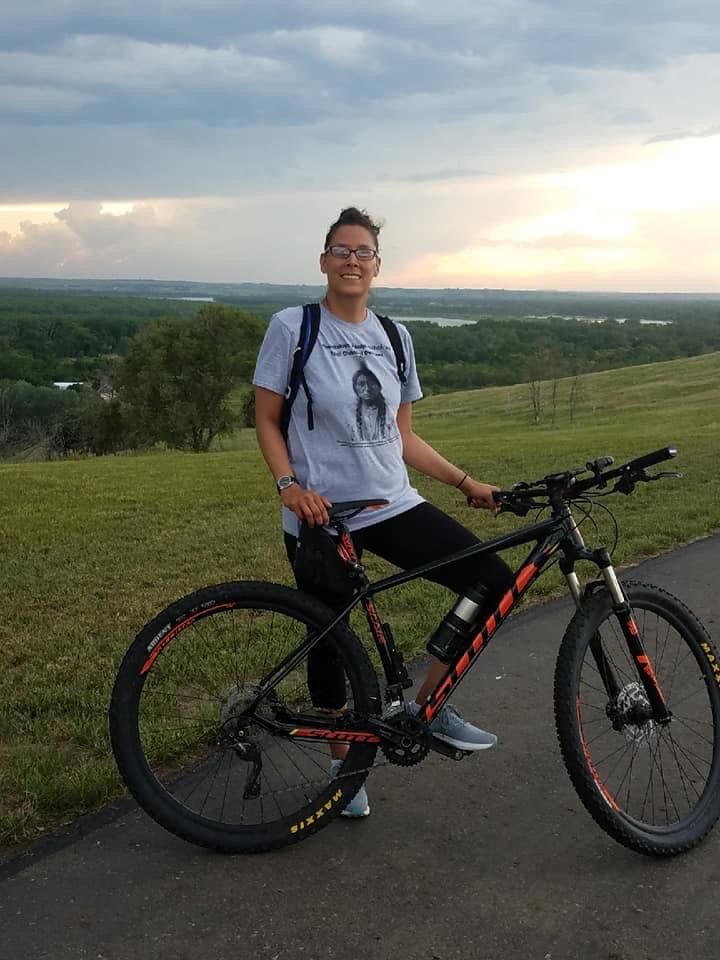
Biking on the Missouri River
Dr. Lisa Brooks, Oglala Lakota College, Business Department Associate Professor
2023-2024 Indigenous Visionaries Fellow
I took an abundant amount of time wondering what words I could offer to inspire young Indigenous women. I think sharing a piece of my own story could resonate with others who may have had similar struggles in their lives. I grew up in an era and culture where people believed that a family’s business was their own and that dragging skeletons out of the closet could bring only heartache and pain. For Indigenous women this can become complicated because of the multiple hats we have to wear, leading many to suffer in silence when we are going through life’s struggles. Sometimes it is easier to compartmentalize and push any feelings way down deep, ignore that they exist, or to not feel anything at all. I got to a point in life where I did not cry or feel any pain because I learned to shut it off. This is not a healthy escape but rather like putting a lock on a box that will eventually spill over.
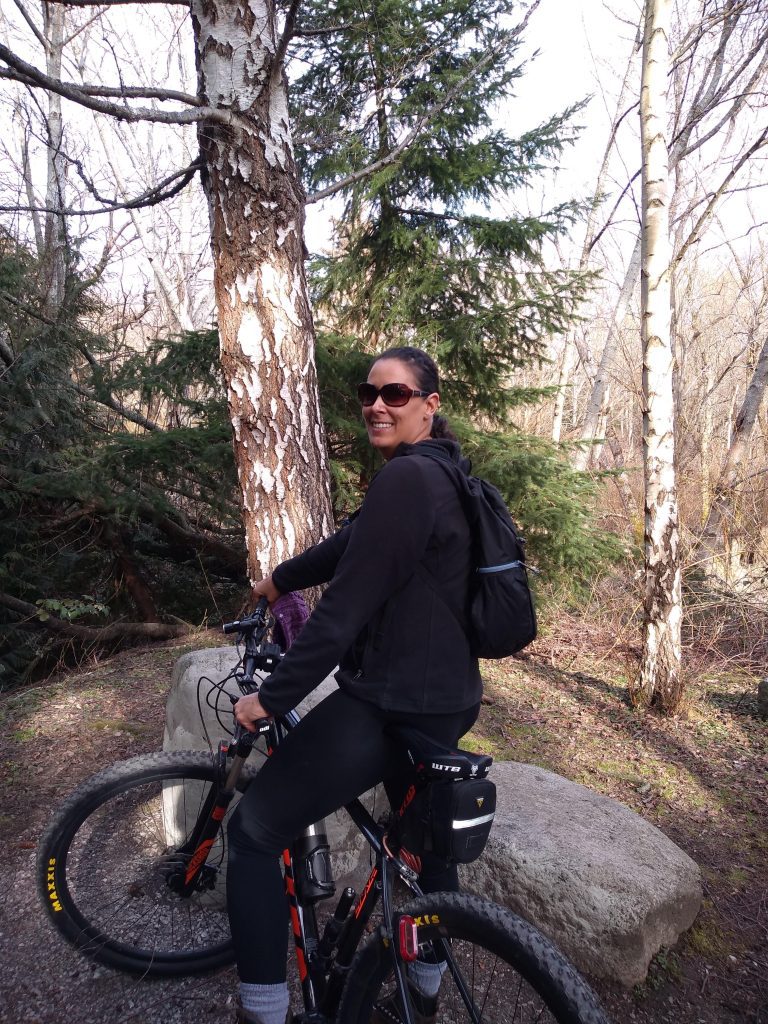
Biking in the Pacific Northwest
In 2015, I had one of the most devasting years of my life with my maternal grandmother dying in my arms while my mother helplessly watched. I moved out of state trying to restart my life but that box I spoke of, well it burst open, and my life spiraled out of control. I used to ask myself whether I was on a road to self-discovery or self-destruction. I found myself one evening sitting on the floor in tears holding my “Canupa” begging Tunkasila (God or Creator) to help me. He answered my prayers and connected me with what I call my Dakota spiritual family who helped me come back from a deep dark place. I came to the realization that it was neither self-destruction nor self-discovery but rather self-recovery. I was always there, I just had to reconnect to who I was with the understanding that self-care is essential to have peace.
So, I offer you this, first, don’t be ashamed to talk about any issues you may have with your mental health such as stress, depression, anxiety, or a personal favorite “compassion fatigue.” Secondly, you must learn to have a self-care routine to manage those moments in life where it’s overwhelming or literally unbearable. This can look different for everyone, and it is not a one size fits all remedy. To manage peace in my life I had to change my behavior including switching careers, learning my limits, and realizing that consistency in my self-care routine helps me stay grounded, even in times of crisis. My self-care routine consists of eating healthy, getting a daily workout in, meditation, and prayer. In the warmer months I ride my mountain bike on some of the best trails I can find. I call this “serenity in solitude” because there is no time limit, no agenda, no destination, just me, my bike, and the beautiful scenery. So, remember, it is okay to take care of “you” first, and in my life taking care of “me” has become essential to “protecting my peace.”
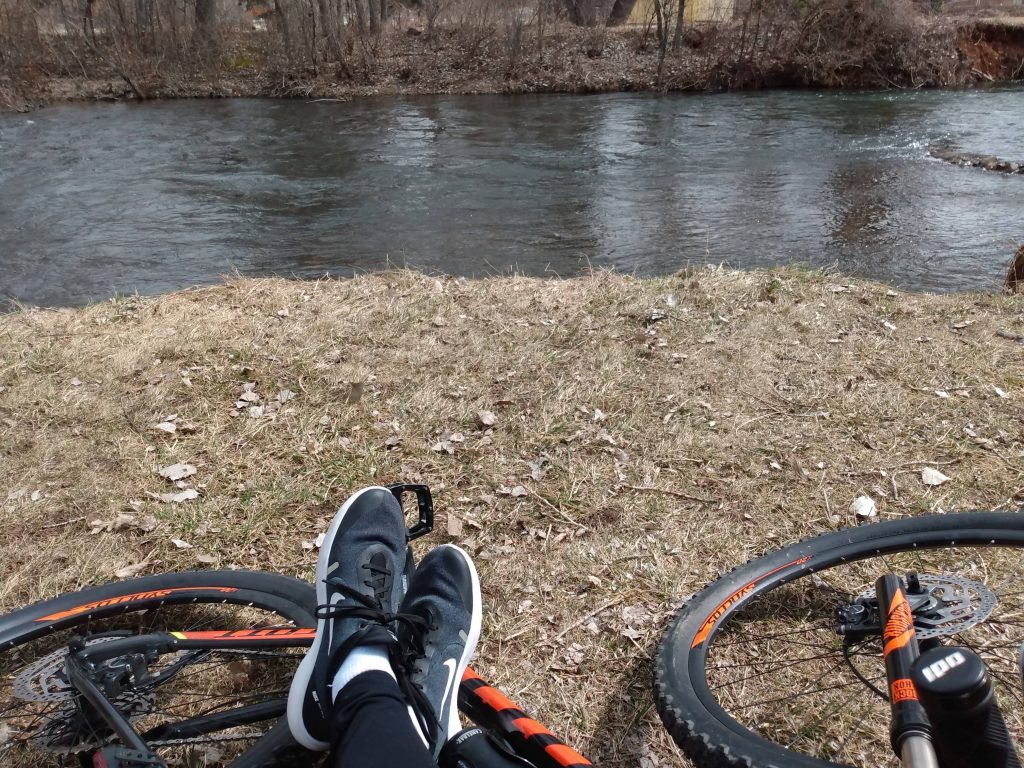
Sitting with Bike

